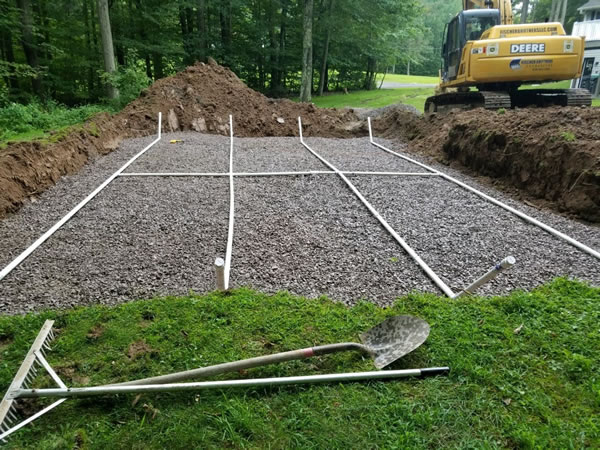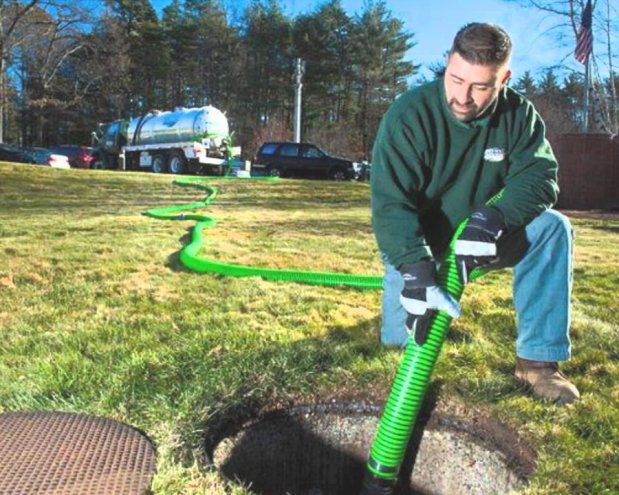
21
The unseen hero beneath our properties, the septic system, relies heavily on the interaction between various components, and one often overlooked element is the soil. Soil plays a pivotal role in determining the efficiency and longevity of a septic system.
The type of soil in your property can significantly affect how efficiently your septic system operates. Soil acts as a natural filter, facilitating the absorption of liquid effluent from the septic tank into the surrounding ground. Ideal soil for septic systems is well-draining and allows for proper absorption, preventing the system from becoming overloaded.
Before the installation of a septic system, a thorough site evaluation is essential. This process involves assessing the percolation rates of the soil, which indicates how quickly water can move through it. Different types of soil have varying percolation rates, and understanding these rates helps determine the appropriate size and design of the septic system.
The type of soil on your property influences the feasibility and success of septic tank installation. In areas with high clay content, soil drainage may be compromised, leading to slow percolation rates. In contrast, sandy or loamy soils facilitate better drainage. Professional septic companies take these factors into account during installation, ensuring that the system is compatible with the soil conditions.
Regular septic tank pumping is a crucial maintenance task to prevent solids from accumulating and clogging the drain field. The condition of the soil plays a vital role in the effectiveness of septic tank pumping. If the soil becomes saturated due to heavy rainfall or poor drainage, the ability of the drain field to absorb effluent is compromised. This can lead to backups, unpleasant odors, and potential septic tank failures.
Over time, soil compaction can occur, diminishing its ability to absorb liquid efficiently. This can be a result of heavy traffic, construction activities, or even the natural settling of the soil. Soil compaction around the drain field can impede the proper functioning of the septic system. In such cases, septic tank repair may be necessary to address issues like clogs or damage to the drain field caused by compacted soil.
Regular septic tank cleaning is essential to maintain the overall health of the system. The accumulation of sludge and scum in the tank can affect the quality of effluent that reaches the drain field. If the soil is already compromised due to factors like poor drainage or high clay content, the impact of untreated wastewater on the environment can be more pronounced. Routine cleaning, in conjunction with soil-friendly practices, ensures the longevity and effectiveness of the septic system.
In the intricate web of a septic system, soil emerges as a critical player, influencing everything from installation to septic tank pumping, repair, and cleaning. Understanding the soil conditions on your property is vital for making informed decisions about your septic system. Collaborating with Charlotte Septic Pros ensures that site evaluations, installations, and maintenance are carried out with the specific soil characteristics in mind. By recognizing the interconnected relationship between soil and your septic system, you can contribute to the optimal performance and longevity of this essential underground infrastructure.

12
A single slow drain in your home can feel like a minor inconvenience. Maybe the sink takes a little longer…
Read more
05
Are Slow Drains a Septic Issue or Just a Clog? Slow drains are one of those household problems that start…
Read more
02
What Septic Service Techs See That Homeowners Miss Most homeowners only think about their septic system when something goes wrong.…
Read more
21
Simple Habits That Protect Your Septic System A well-functioning septic system does its job quietly, but the moment something goes…
Read more
14
Pump Now or Pay Later: The Real Cost of Skipping Maintenance A properly functioning septic system is easy to forget…
Read more
11
Why Your Septic System Always Acts Up at the Worst Time Homeowners often feel that septic problems strike at the…
Read more
04
Early Warning Signs Your Septic Tank Needs Pumping For homeowners who rely on a septic system, routine maintenance is not…
Read more
29
Why Does My Septic System Smell Fine One Day and Terrible the Next? If you own a home with a…
Read more
19
Is Your Septic System Overdue? Simple Home Checks You Can Do Today For many homeowners, the septic system is a…
Read more
13
5 Signs Your Septic Tank Is Overdue for Pumping Your septic system works quietly behind the scenes, managing wastewater from…
Read more